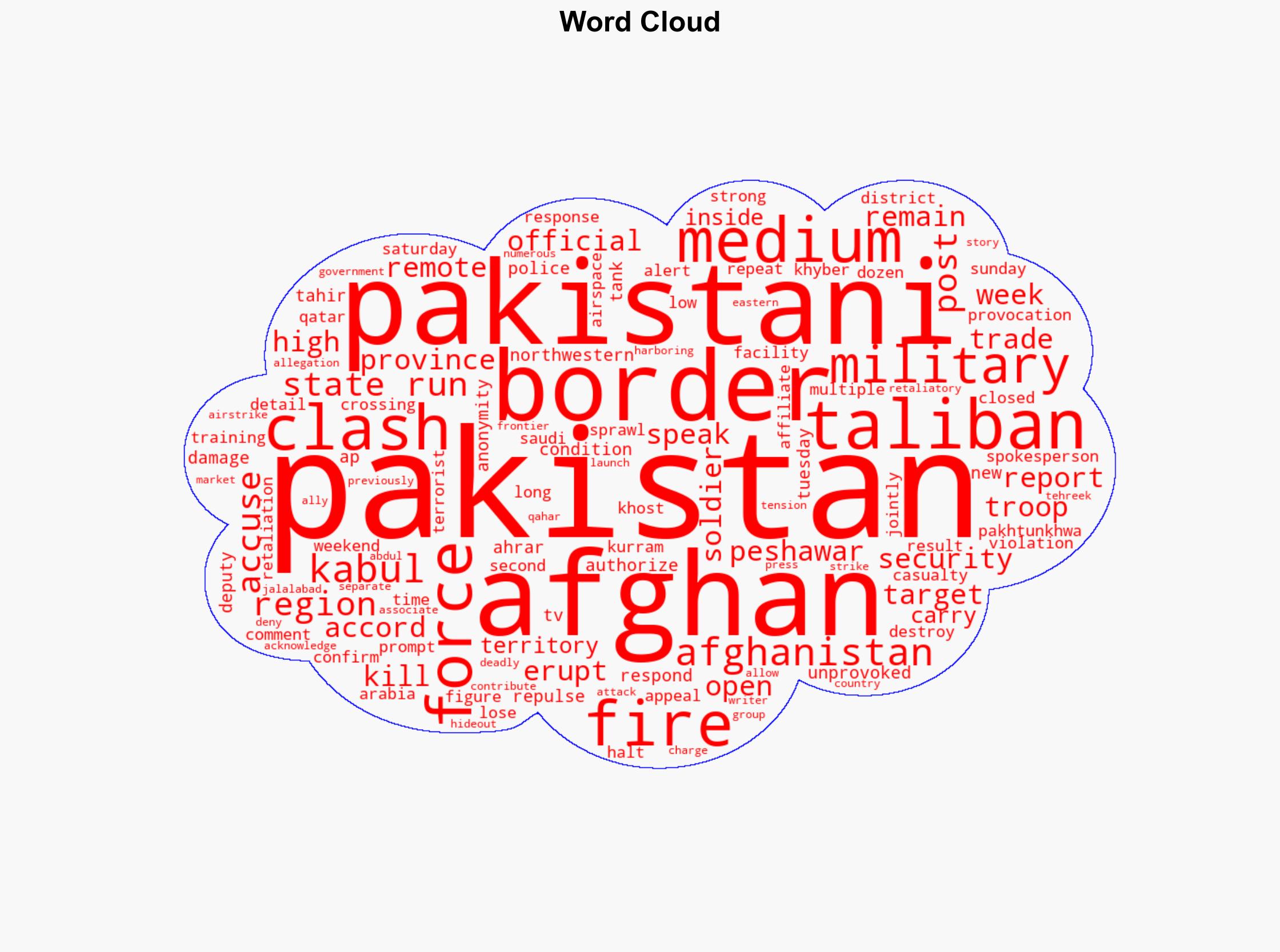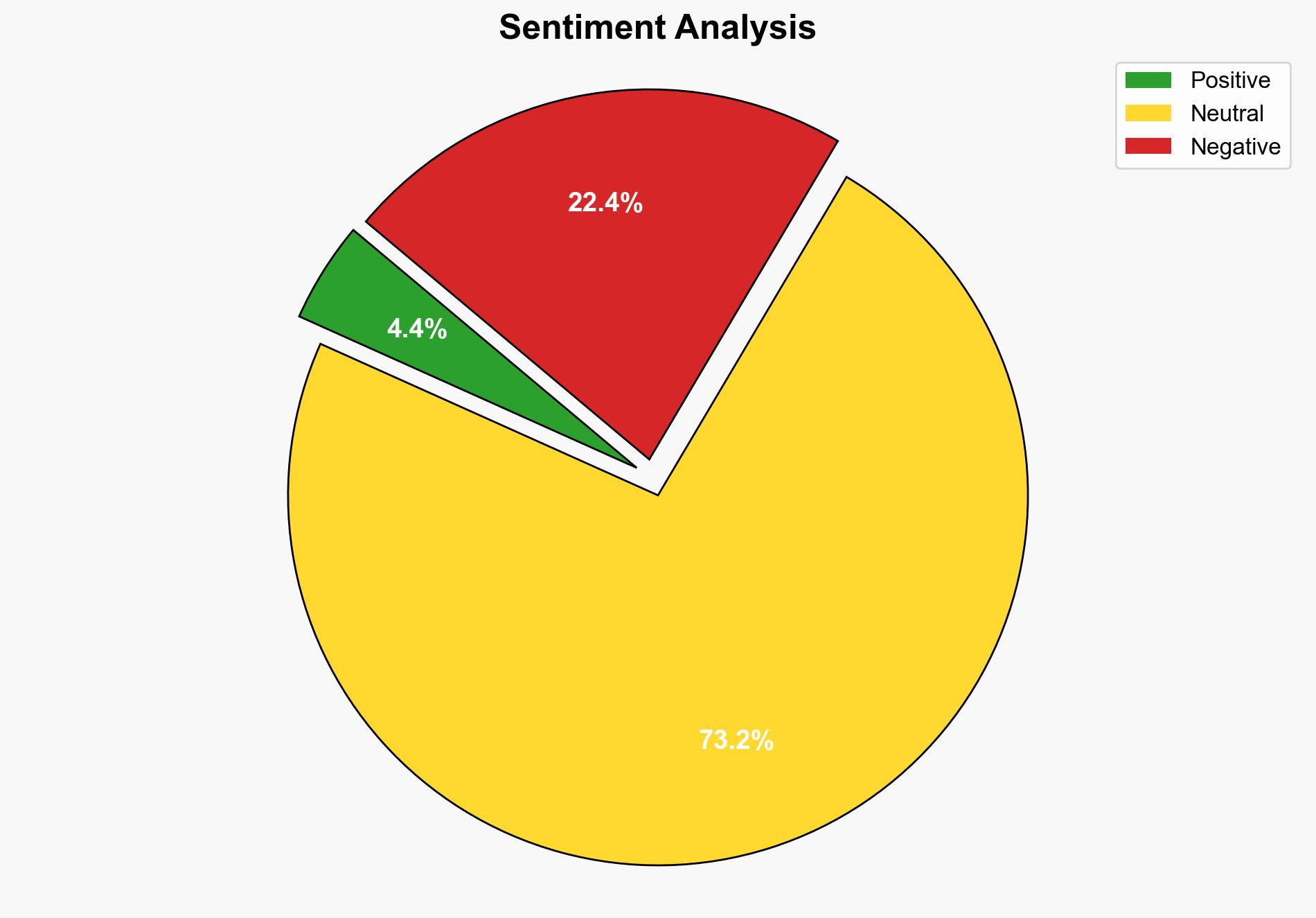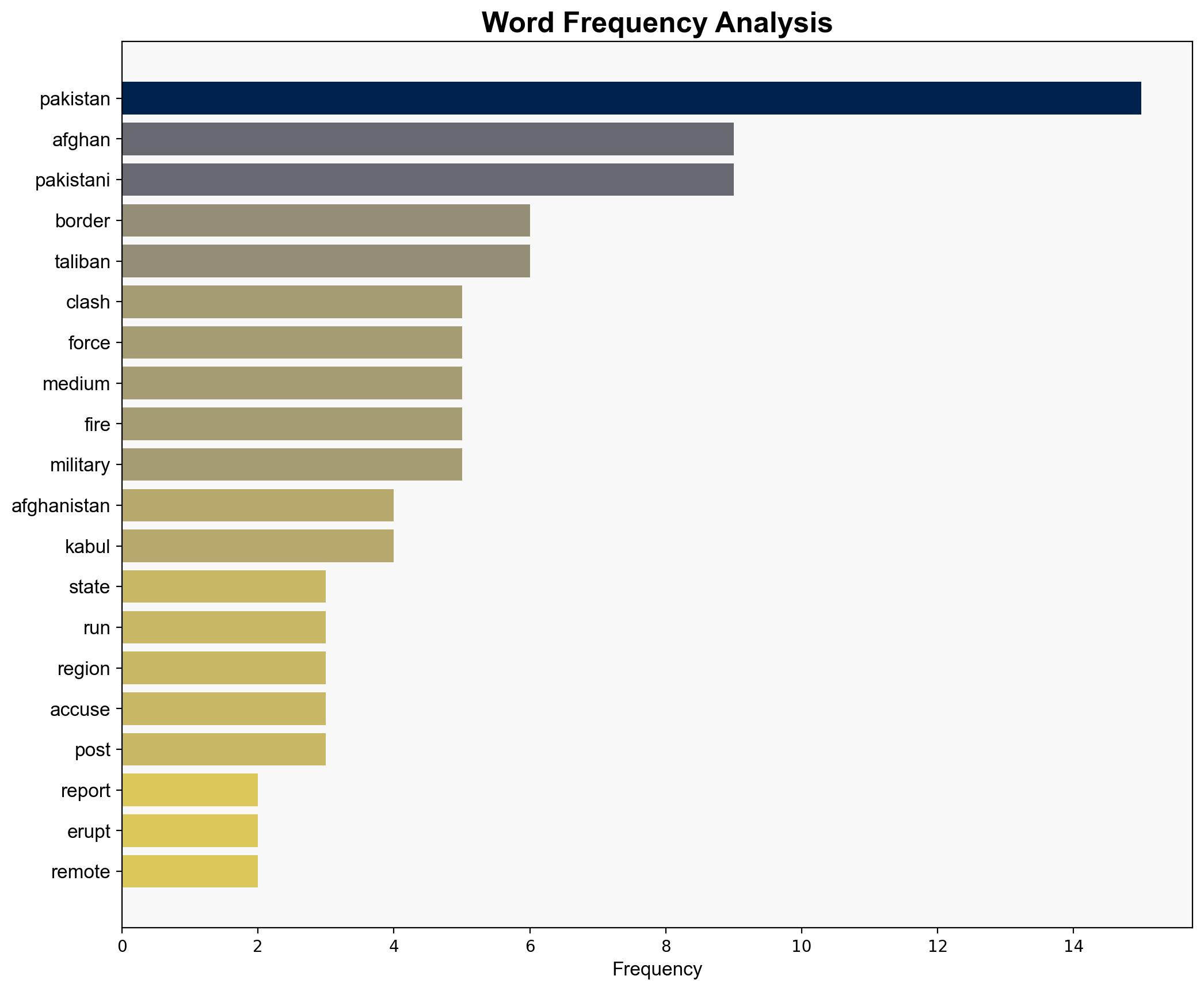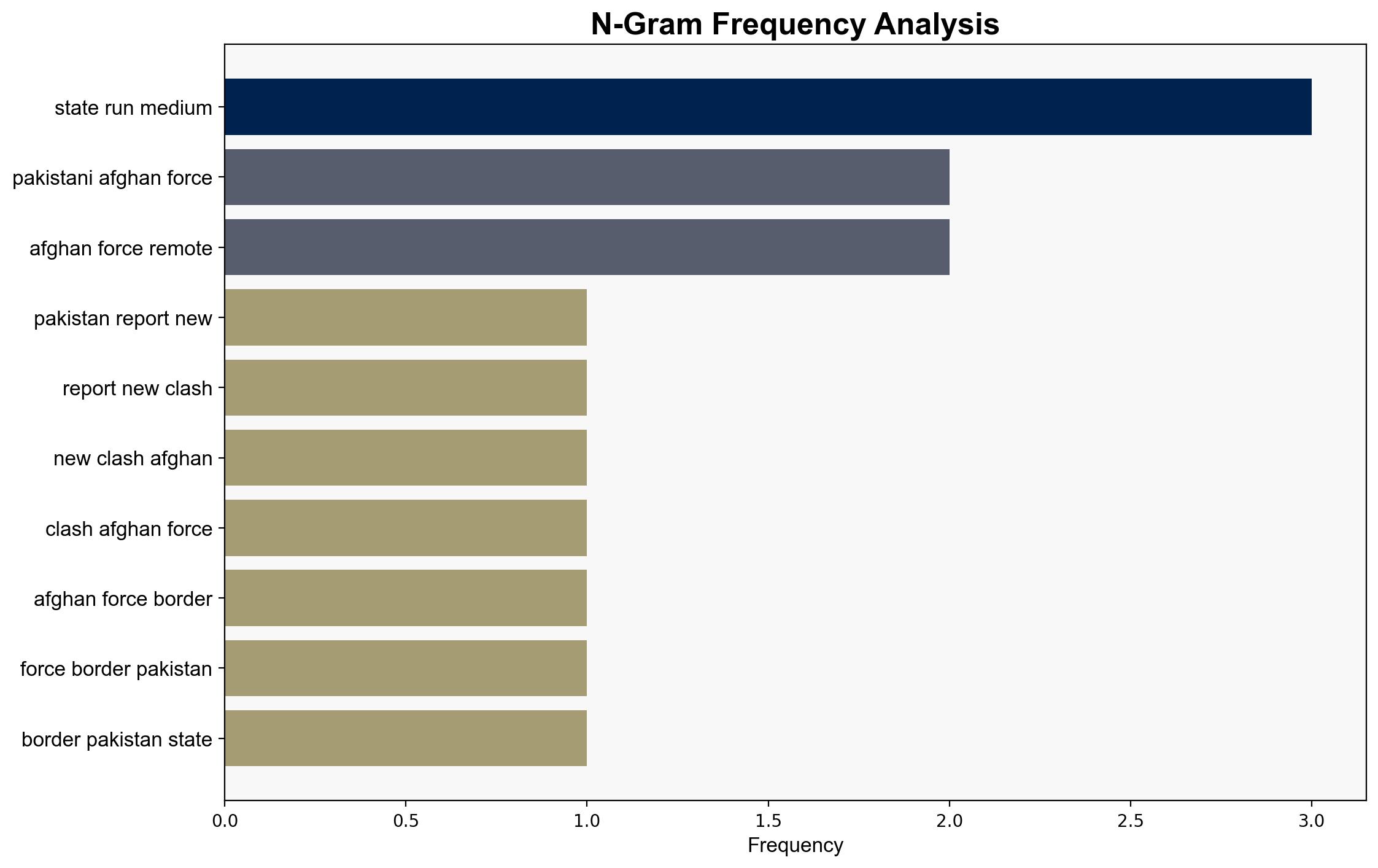Pakistan reports a new clash with Afghan forces along border – ABC News
Published on: 2025-10-15
Intelligence Report: Pakistan reports a new clash with Afghan forces along border – ABC News
1. BLUF (Bottom Line Up Front)
The ongoing clashes between Pakistani and Afghan forces along their border are likely driven by complex interactions involving both state and non-state actors. The most supported hypothesis suggests that these skirmishes are a result of strategic maneuvers by the Pakistani military to counter perceived threats from the Pakistani Taliban (TTP) operating from Afghan territory. Confidence level: Moderate. Recommended action: Enhance diplomatic engagement with both Afghan and Pakistani governments to de-escalate tensions and address underlying security concerns.
2. Competing Hypotheses
Hypothesis 1: The clashes are primarily due to Pakistan’s efforts to counter the TTP, which is allegedly operating from Afghan territory with tacit support from Afghan forces. This hypothesis is supported by Pakistan’s claims of retaliatory actions against TTP hideouts and the destruction of a training facility.
Hypothesis 2: The clashes are a result of miscommunication and lack of coordination between Afghan and Pakistani forces, exacerbated by historical mistrust and recent geopolitical tensions. This hypothesis considers the possibility of unintentional escalations due to the volatile border situation and previous accusations of airspace violations.
3. Key Assumptions and Red Flags
– **Assumptions**: Hypothesis 1 assumes Afghan complicity or at least passive tolerance of TTP activities. Hypothesis 2 assumes that both sides lack effective communication channels to prevent misunderstandings.
– **Red Flags**: The anonymity of sources and lack of independent verification of claims raise concerns about potential bias or misinformation. The absence of Afghan government responses in the report is a significant gap.
4. Implications and Strategic Risks
Continued clashes could destabilize the region further, potentially leading to increased militant activity and cross-border terrorism. Economic impacts include disrupted trade and heightened security costs. Geopolitically, this may strain Pakistan’s relations with Afghanistan and complicate its ties with other regional players. The psychological impact on border communities could foster resentment and radicalization.
5. Recommendations and Outlook
- Facilitate dialogue between Pakistan and Afghanistan to establish clear communication protocols and joint border management strategies.
- Encourage third-party mediation, possibly involving regional powers like Saudi Arabia and Qatar, to de-escalate tensions.
- Scenario Projections:
- Best Case: Successful diplomatic intervention leads to a ceasefire and joint counter-terrorism initiatives.
- Worst Case: Escalation into a broader conflict involving state and non-state actors, destabilizing the region.
- Most Likely: Continued sporadic clashes with intermittent diplomatic efforts to manage tensions.
6. Key Individuals and Entities
– Tahir Ahrar (Deputy Police Spokesperson, Afghanistan’s Khost Province)
– Pakistani Military and Security Officials (Unnamed)
– Tehreek-e-Taliban Pakistan (TTP)
7. Thematic Tags
national security threats, regional stability, counter-terrorism, border conflicts





